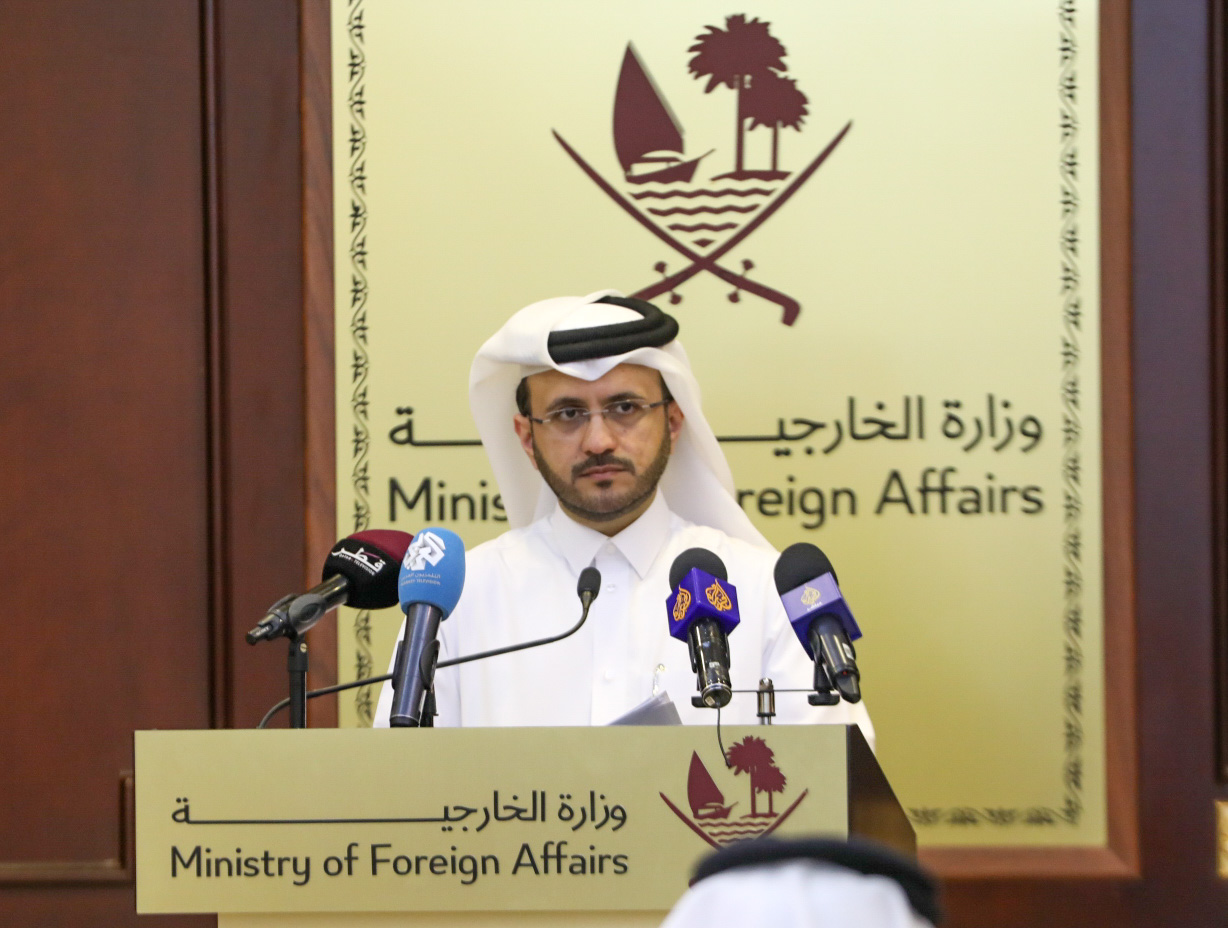Spokesperson for Ministry of Foreign Affairs: Our Stance on Syrian Crisis Depends on Regime's Moves, Arab Consensus on Them

Doha, Media & Communication Dept., March 23
Advisor to the Deputy Prime Minister and Minister of Foreign Affairs, and official spokesperson for the Ministry of Foreign Affairs, Dr. Majed bin Mohammad Al Ansari stressed that the State of Qatar's stance on the Syrian crisis is crystal clear, yet it is driven by two factors, first, the Syrian regime does what satisfies the aspirations of the Syrian people, and the second is the Arab consensus regarding those moves.
During the media briefing organized by the Ministry of Foreign Affairs, Al Ansari said that concerning the Jordanian initiative to be launched, which is based on a direct Arab role that engages with the Syrian government in a political dialogue aimed at resolving the crisis and addressing its humanitarian, security and political repercussions, the State of Qatar supports all initiatives aimed at finding peace in Syria, and supports all Arab and international efforts in that regard.
He pointed out that several initiatives have been launched that Qatar is involved in many of them aiming primarily to achieve the Syrian people's aspirations and support any effort that may achieve comprehensive peace according to the aforementioned factors.
Regarding the Qatari stance on the decisions of the Afghan caretaker government regarding preventing girls from education, the official spokesperson for the Ministry of Foreign Affairs pointed out that Qatar has repeatedly condemned these decisions, indicating that it started early in positive communication with the Afghan government, and practical mechanisms were put in place to achieve the wishes of the Afghan people and meet their aspirations.
He pointed out that Qatar Fund for Development (QFFD) signed a memorandum of understanding with the Afghan Ministry of Education regarding the launch of the educating out-of-school primary boys and girls project to enroll 30,000 students, 50 percent of whom are girls, to complete their primary education in several Afghan provinces, and that this project will last for three years. He expressed his hope that the current government would change its approach regarding women's rights to education and work.
Advisor to the Deputy Prime Minister and Minister of Foreign Affairs, and official spokesperson for the Ministry of Foreign Affairs, Dr. Majed bin Mohammad Al Ansari reviewed the efforts of the Ministry of foreign affairs and its efforts during the past couple of weeks, including the phone conversations between HE Prime Minister and Minister of Foreign Affairs Sheikh Mohammed bin Abdulrahman bin Jassim Al-Thani and the Foreign Ministers of Saudi Arabia and Iran and his welcoming of the Saudi-Irani agreement and the issuance of the joint statement, and the State of Qatar's support to all what it included.
Al Ansari noted His Excellency's meeting with the President of Rwanda, as well as other officials who visited Doha recently, and His Excellency's participation in the meeting of the 155th session of the Ministerial Council of the Cooperation Council for the Arab States of the Gulf (GCC).
He also reviewed the efforts of the officials of the Ministry of Foreign Affairs and their external participation in the Council of the Arab League and the Organization of Islamic Cooperation and their meetings with many European, American, and African officials as well as international, regional, and UN organizations to coordinate the efforts and support peace and development processes in various regions of the world, especially Arab, Islamic, and African countries.
He also reminded of the statement issued by the Ministry of Foreign Affairs, which condemned in the strongest terms the statements of the Israeli Minister of Finance, in which he denied the existence of the Palestinian people while using a map of Israel that contained borders of the Hashemite Kingdom of Jordan and the occupied Palestinian territories. The Ministry of Foreign Affairs considered the minister's use of the map as a flagrant violation of international norms and covenants, calling on the international community to assume its responsibility and force Israel to respect the resolutions of international legitimacy. The Ministry of Foreign Affairs reiterated Qatar's firm stance on the just Palestinian cause, the legitimate rights of the brotherly Palestinian people, and the establishment of their independent state on the 1967 borders, with East Jerusalem as its capital.

